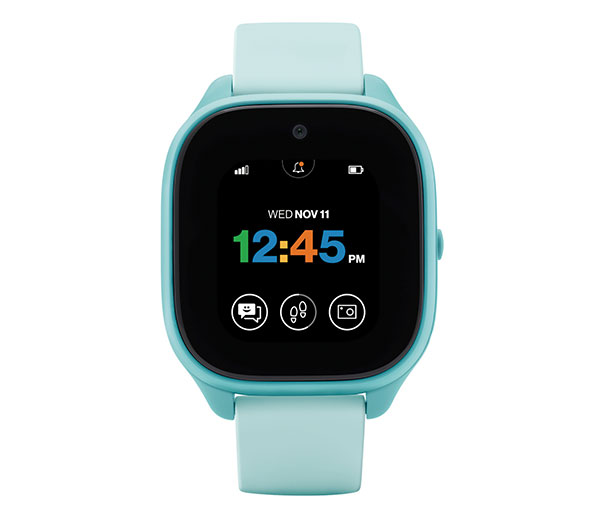Lifestyle
Top Tech to Enhance Education
Last Updated on July 26, 2024 by Daily News Staff
6 devices to boost the back-to-school experience
(Family Features) Gone are the days of paper and pencil being the necessities for learning. Schoolwork has gone digital, meaning it’s time to gear up your students for success with the top tech that keeps them connected in the classroom and beyond.
From kid-friendly smartphones and earbuds to connected wearables and devices that keep learning fun, consider these on-trend solutions as your kids head back to school.
Find more schooltime tech by visiting Qualcomm.com/snapdragonbts.
Stay Connected
Send kids to the classroom and stay connected with a modern smartphone featuring a throwback look that may call to mind your own days at school. Thoughtfully designed to allow users to capture, create and interact with their device, the Motorola Razr runs on the powerful Snapdragon 8+ Gen 1 Mobile Platform with a modern, ultra-pocketable design. It offers an efficient battery with ultra-fast charging and the largest external flip phone display.
Power At-Home Productivity
Students (and parents, too) can accomplish more after school like homework, studying and socializing with the Dell Inspiron 14 laptop powered by the Snapdragon 8cx Gen 2 Compute Platform. Equipped with the Qualcomm AI Engine, this processor enhances audio and visual experiences. Effortlessly multitask and shift between apps without sacrificing speed or battery life, given the power-efficient processor that helps deliver long battery life even in thin, light and quiet designs that don’t require a loud, hot fan.
Listen and Learn
Whether students are listening to prerecorded lessons, immersing themselves in audiobooks or simply enjoying some favorite music while completing schoolwork, high-quality earbuds can help block out noise for maximum productivity. For example, the Moto Buds 600 ANC Wireless Earbuds feature Snapdragon Sound technology that delivers advanced wireless audio quality. A game changer for wireless audio, it eliminates the gap between wireless and wired connections for high-resolution music and synced entertainment.
Opt for Kid-Friendly Wearables
If a smartphone is a bit too advanced for your little learners, an age-appropriate smartwatch that keeps them connected may be a better fit. Empower kids to be kids with an option like the Snapdragon Wear 4100-powered Verizon Gizmo Watch 3 with a range of benefits from 4G LTE cellular connectivity to games and GPS-safe zones. This smartwatch is designed with safety and fun in mind without the distractions of a smartphone so you can have some peace of mind while keeping students focused in the classroom.
Keep In Touch During Schooldays
Hectic schedules during schooldays and workdays can leave parents feeling out of the loop. When your children are ready for a ride home or a practice, game or activity gets canceled, ensure you can be the first to know by keeping them connected with the OnePlus 11 5G powered by the Snapdragon 8 Gen 2 Mobile Platform. It combines power with effortless elegance and is driven by extreme hardware with Dolby Atmos Speakers, Dolby Vision, 80W SUPERVOOC Charging and 3rd Gen Hasselblad Camera for Mobile.
Reward Making the Grade
Custom-built to be the ultimate Android gaming handheld, the Razer Edge with the purpose-built Snapdragon G3x Gen 1 platform delivers unrivaled performance. Combined with a 144Hz AMOLED display for clarity at high speeds and a Kishi V2 Pro console-quality controller, it allows for sustained performance so users can game for hours with high-quality graphics and high frame rates. Specifically designed and optimized for gaming with an active-cooling fan, it unleashes high framerates over long play sessions.
Photo courtesy of Getty Images (kids studying with father)
SOURCE:
Qualcomm
Our Lifestyle section on STM Daily News is a hub of inspiration and practical information, offering a range of articles that touch on various aspects of daily life. From tips on family finances to guides for maintaining health and wellness, we strive to empower our readers with knowledge and resources to enhance their lifestyles. Whether you’re seeking outdoor activity ideas, fashion trends, or travel recommendations, our lifestyle section has got you covered. Visit us today at https://stmdailynews.com/category/lifestyle/ and embark on a journey of discovery and self-improvement.
Discover more from Daily News
Subscribe to get the latest posts sent to your email.
Travel
What’s Trending in Travel in 2026
In 2026, travelers are prioritizing immersive experiences over quick vacations, with a strong demand for personalized, intentional trips. Despite economic concerns, a survey reveals nearly all respondents plan to travel, often seeking the guidance of travel advisors. Trends include spacious accommodations, cultural immersion, wellness experiences, and multi-generational travel.

What’s Trending in Travel in 2026
(Feature Impact) After years of fast-paced itineraries and social media-inspired vacations, travelers are looking to slow down in 2026, instead focusing on more personal, immersive experiences.
That’s not to say Americans will be looking to travel any less – just more intentionally. Despite economic, political and cultural shifts, travel shows no signs of slowing down this year. In fact, according to a survey conducted on behalf of ALG Vacations, 100% of respondents plan to take a vacation in the next year, with 97% likely to travel for leisure in the next 6 months despite those concerns.
Even with tightened budgets, 95% of those surveyed would still travel – even if it meant scaling back. To help travelers zero in on what they’re looking to experience in 2026, working with a travel advisor when starting to plan that annual getaway can make the process easier.
Additional survey data shows 7 in 10 travelers are turning to professionals to plan their next trips with the younger generations leading the way; 83% of Gen Z and 78% of Millennials are likely to turn to a travel advisor for help with planning and booking.
 “What’s really interesting is that travel advisors are resonating with a new wave of travelers,” said ALG Vacations’ Travel Advisor Champion Carson Kressley, the renowned style expert and world traveler best known for his role on “Queer Eye for the Straight Guy” and his current Emmy Award-winning judge role on “RuPaul’s Drag Race.” “They want help uncovering hidden-gem destinations and great-value packages, and a new generation of advisors is meeting them exactly where they are.”
“What’s really interesting is that travel advisors are resonating with a new wave of travelers,” said ALG Vacations’ Travel Advisor Champion Carson Kressley, the renowned style expert and world traveler best known for his role on “Queer Eye for the Straight Guy” and his current Emmy Award-winning judge role on “RuPaul’s Drag Race.” “They want help uncovering hidden-gem destinations and great-value packages, and a new generation of advisors is meeting them exactly where they are.”
In addition to booking your next excursion with the assistance of a travel advisor, consider these trends Kressley identified for the year ahead.
Space and Privacy
In 2026, spaciousness is an expression of luxury – private villas, low-density boutique resorts and nature-framed hideaways where quiet feels curated and beauty isn’t shared with the masses. As travelers prioritize serenity over scene, this trend reflects an emotional need for clarity as they look for time to reset and environments that support genuine presence.
Immersion in Culture and Hyper-Local
Travelers desire authentic experiences shaped by local chefs, artisans and storytellers who bring a destination’s heritage to life. It’s no longer about observing culture from a distance; it’s about actively participating in it with the destination’s native citizens, reflecting a desire for meaning and perspective.
 Longer, More Intentional Vacations
Longer, More Intentional Vacations
Instead of rushing through multiple destinations, travelers are embracing itineraries that allow them to breathe through longer stays and experiences that unfold naturally. From a lingering lunch to an unstructured afternoon, this shift toward savoring prioritizes depth and connection.
Transformational Wellness
As wellness continues to evolve into deeply personal territory, travelers seek experiences that restore mind, body and perspective such as sunrise rituals, nature-led healing, cultural wellness traditions and programs designed for renewal.
Screen-Inspired Destinations
Pop culture continues to influence travel, but today’s travelers seek more than filming locations. In 2026, they’re searching for dramatic landscapes, atmospheric architecture, richly layered cultures and experiences that evoke emotion and capture the feeling of their favorite cinematic worlds. This evolution of set-jetting is about stepping into a story rather than tracing its steps.
Shared Multi-Generational Moments
Multi-generational travel is shifting toward more purpose-driven experiences – milestone celebrations, cultural reconnection trips and meaningful moments together. The emphasis is on togetherness, personalization and experiences that feel like legacy.
To learn more and start booking your next adventure, visit traveladvisorsgetyouthere.com.
Photos courtesy of Shutterstock
![]()
Source: ALG Vacations
Our Lifestyle section on STM Daily News is a hub of inspiration and practical information, offering a range of articles that touch on various aspects of daily life. From tips on family finances to guides for maintaining health and wellness, we strive to empower our readers with knowledge and resources to enhance their lifestyles. Whether you’re seeking outdoor activity ideas, fashion trends, or travel recommendations, our lifestyle section has got you covered. Visit us today at https://stmdailynews.com/category/lifestyle/ and embark on a journey of discovery and self-improvement.
Discover more from Daily News
Subscribe to get the latest posts sent to your email.
pets
Understanding Winter Pet Health Risks
Pet Health: Winter poses health risks to dogs, including frostbite and hypothermia. Pet owners should limit exposure, provide adequate shelter, adjust diets, and ensure safe indoor environments to maintain their pets’ well-being.
Last Updated on February 21, 2026 by Daily News Staff
(Family Features) While some dogs prefer to be outdoors regardless of the weather, the cold and often snowy and icy conditions winter brings can pose serious threats to their health.
Much like the well-publicized challenges of keeping your four-legged family members healthy during the warmer weather, it’s important for pet owners to be aware of the unique threats that can arise during colder conditions.
Recognizing Cold Weather Hazards
Winter weather can pose various hazards to pets, including frostbite and hypothermia. Dogs left outside for extended periods, particularly those with short coats or pre-existing health conditions, are at greater risk. It’s essential to limit exposure to extreme cold, provide adequate shelter and recognize the symptoms of winter-related illnesses.
Signs of hypothermia include shivering, lethargy and pale gums. Frostbite may present as discolored, cold skin, particularly on extremities like ears, paws and tails.
Protecting Your Pet’s Skin and Paws in Winter
Cold, dry air can cause pets’ skin to become dry and flaky. Regular grooming and moisturizing can help maintain their skin’s health. Consider using pet-safe moisturizers and avoid bathing them too frequently, as it can strip natural oils.
Additionally, be cautious of salt and de-icing chemicals, which can irritate dogs’ paws and skin. Protect their paws by using booties or applying a pet-safe balm to help prevent cracks and irritation caused by ice, salt and cold surfaces. If not covering paws, always clean them after walks to check for any signs of injury or discomfort and consider using pet-safe ice melters.
Adjusting Diets for Winter
During the winter months, dogs may require a different diet to maintain their energy levels and body heat. Consult with your veterinarian about adjusting your four-legged friend’s food intake, especially if his or her activity level changes. Monitor your pet’s weight and adjust feeding portions as needed to prevent obesity or malnutrition.
Also ensure your pet has access to fresh water, as dehydration can still occur in cold weather. In fact, warm water may encourage pets to drink more.
Keeping Pets Safe Indoors
If your winter pet safety plan includes keeping your dog indoors more often, ensure you provide him or her a warm and comfortable place to rest. Avoid placing your pet’s bed near drafty windows or doors, cold tile floors or uninsulated areas.
Also be mindful of potential hazards such as space heaters, fireplaces, holiday decorations and chemicals such as antifreeze, which is toxic to dogs. Keep them out of reach to prevent burns or accidental ingestion.
If you notice any unusual behavior or symptoms, contact your veterinarian immediately. Early intervention can prevent severe complications and ensure your furry friend remains healthy throughout the winter months. Find more tips to help keep your pets happy and healthy all year long at eLivingtoday.com.
Photo courtesy of Shutterstock
SOURCE:
eLivingtoday.com
Our Lifestyle section on STM Daily News is a hub of inspiration and practical information, offering a range of articles that touch on various aspects of daily life. From tips on family finances to guides for maintaining health and wellness, we strive to empower our readers with knowledge and resources to enhance their lifestyles. Whether you’re seeking outdoor activity ideas, fashion trends, or travel recommendations, our lifestyle section has got you covered. Visit us today at https://stmdailynews.com/category/lifestyle/ and embark on a journey of discovery and self-improvement.
Discover more from Daily News
Subscribe to get the latest posts sent to your email.
Lifestyle
How to Practice Thoughtful Grief Etiquette Online
Grief experts advise caution in sharing condolences and loss-related information on social media, emphasizing the importance of prioritizing the grieving family’s needs. Thoughtful posting practices include waiting for family approval, reaching out privately first, and avoiding speculation about the cause of death. Compassionate communication is essential in these sensitive situations.

(Feature Impact) News of a death can spread online in seconds – often before families have notified close family members privately. That’s why grief experts urge people to rethink how they share condolences, tributes and loss-related information on social media, particularly during the winter months when grief can feel especially isolating.
“Grief etiquette is about putting the needs of the grieving family first, not our urge to say something publicly,” said Dr. Camelia L. Clarke, National Funeral Directors Association (NFDA) spokesperson, funeral director and grief educator with nearly 30 years of experience. “Just because information can be shared instantly doesn’t mean it should be.”
Social media has become a common place for sharing condolences, tributes and memories. However, grief experts caution that, without thoughtful consideration, online posts can unintentionally cause harm. Knowing when to post, what to say and when to remain silent can make a meaningful difference for families experiencing loss.
Consider this advice from the experts at the NFDA.
Grief Etiquette in the Digital Age
Grief etiquette refers to the unspoken guidelines for how individuals acknowledge death, loss and mourning, particularly online.
According to Clarke, one of the most important principles is restraint.
“When a death is shared online too quickly, families can feel exposed and overwhelmed at a moment when they’re still processing the loss themselves,” she said. “Waiting is an act of compassion.”
Best Practices for Posting About Loss Online
As social media continues to play a role in modern mourning, grief professionals encourage users to pause before posting and consider a few key guidelines:
- Let the family lead. Don’t post about a death until the immediate family has made it public.
- Ask permission. Obtain consent before sharing photos, stories or tributes.
- Reach out privately first. A direct message, call or handwritten note can be more meaningful than a public comment.
- Avoid speculation. Don’t ask about or share details regarding the cause of death.
- Offer ongoing support. Grief extends far beyond the first days or weeks after a loss.
What to Say (and Avoid)
When expressing condolences online, experts recommend simplicity, sincerity and sensitivity. Messages that acknowledge loss without attempting to explain or minimize it are often the most supportive.
Helpful phrases include:
- “I’m sorry for your loss.”
- “Thinking of you and your family.”
- “I’m here if you want to talk or need anything.”
By contrast, well-meaning cliches can unintentionally cause harm. Phrases such as “They’re in a better place” or “Everything happens for a reason” may reflect the speaker’s beliefs, but they can feel dismissive to someone grieving.
“Grieving people don’t need answers – they need presence,” Clarke said. “Listening matters more than saying the perfect thing.”
Resources for Families and Friends
As digital spaces continue to shape how people communicate during life’s most difficult moments, experts agree empathy, patience and respect remain timeless.
“Grief is deeply personal,” Clarke said. “When we slow down and lead with compassion, we honor both the person who has died and those who are left to grieve.”
To learn more about how to support a grieving person and access free, expert-reviewed resources for navigating grief, expressing condolences and supporting loved ones before, during and after a loss, visit RememberingALife.com, an initiative of the NFDA.
Photo courtesy of Shutterstock
<img src="https://ssl.google-analytics.com/collect?v=1&tid=UA-482330-7&cid=1955551e-1975-5e52-0cdb-8516071094cd&sc=start&t=pageview&dl=http%3A%2F%2Ftrack.familyfeatures.com%2F17832%2F10240&dt=HOW-TO-PRACTICE-THOUGHTFUL-GRIEF-ETIQUETTE-ONLINE" />
<img src="https://erp.featureimpact.com/api/v1/tracking/17832/10240/track.gif" />SOURCE:
National Funeral Directors Association
Discover more from Daily News
Subscribe to get the latest posts sent to your email.
